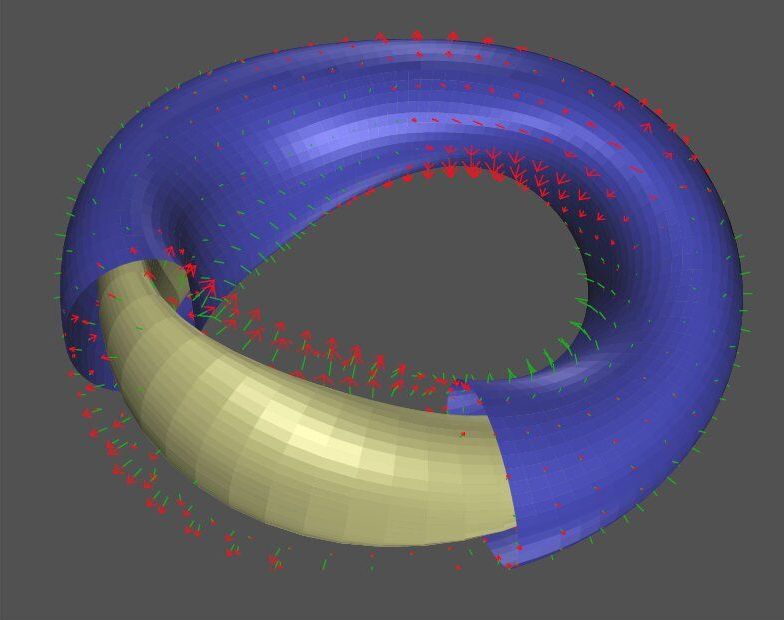Despite the lack of official comment on the mission, China’s first expedition to Mars appears to be on track.



Permanent magnets akin to those used on refrigerators could speed the development of fusion energy—the same energy produced by the sun and stars.
In principle, such magnets can greatly simplify the design and production of twisty fusion facilities called stellarators, according to scientists at the U.S. Department of Energy’s (DOE) Princeton Plasma Physics Laboratory (PPPL) and the Max Planck Institute for Plasma Physics in Greifswald, Germany. PPPL founder Lyman Spitzer Jr. invented the stellarator in the early 1950s.
Most stellarators use a set of complex twisted coils that spiral like stripes on a candy cane to produce magnetic fields that shape and control the plasma that fuels fusion reactions. Refrigerator-like permanent magnets could produce the hard part of these essential fields, the researchers say, allowing simple, non-twisted coils to produce the remaining part in place of the complex coils.

Lasers o.o
They could supply energy to far-flung bases, power laser weapons and charge electric vehicles.

Life is rife with patterns. It’s common for living things to create a repeating series of similar features as they grow: think of feathers that vary slightly in length on a bird’s wing or shorter and longer petals on a rose.
It turns out the brain is no different. By employing advanced microscopy and mathematical modeling, Stanford researchers have discovered a pattern that governs the growth of brain cells or neurons. Similar rules could guide the development of other cells within the body, and understanding them could be important for successfully bioengineering artificial tissues and organs.
Their study, published in Nature Physics, builds on the fact that the brain contains many different types of neurons and that it takes several types working in concert to perform any tasks. The researchers wanted to uncover the invisible growth patterns that enable the right kinds of neurons to arrange themselves into the right positions to build a brain.

The Cleveland Clinic has developed a coronavirus test that will be able to deliver results in just eight hours.
It will be significantly faster than tests available at other US public health laboratories, which take between two to seven days to confirm results.
Denmark is on coronavirus lockdown, becoming the second country in Europe to grind to a halt as the life-threatening disease rips across the continent.
Prime Minister Mette Frederiksen declared that all Danish schools, universities, and kindergartens will be shut for two weeks to slow the spread of the bug.
Tough new measures will also include banning indoor events with 100 or more participants, and sending non-critical public sector employees home.

Investors betting big against catastrophic diseases are watching the World Health Organization closely as insurance bonds tied to whether the organization labels COVID-19 a pandemic are set to mature in June.
In 2017, the World Bank designed a new way to raise money: Pandemic Emergency Financing bonds. Over $425 million worth of such bonds, which bet against a global outbreak of infectious diseases and will default if WHO declares the coronavirus a pandemic, were sold by the World Bank in its first-ever issuance of catastrophe bonds. In the event of no pandemic, investors would be paid a healthy annualized return. Meanwhile, the World Bank could use the bonds to insure itself against the risk of a global outbreak.
“As an investor, we do not want to lose money,” said Chin Liu, a portfolio manager at Amundi Pioneer, a Boston-based firm that purchased the bonds as a way to diversify the company’s $1 billion catastrophe fund. “But then, we also understand if it’s unfortunately triggered, it benefits every single person, including ourselves, to keep the virus controlled.”
The new coronavirus can live in the air for several hours and on some surfaces for as long as two to three days, tests by U.S. government and other…
In a new video, aerospace company Blue Origin reveals its finished mission control center in Cape Canaveral, Florida, where engineers will monitor upcoming launches of the company’s future New Glenn rocket. The rocket is expected to fly sometime in 2021.